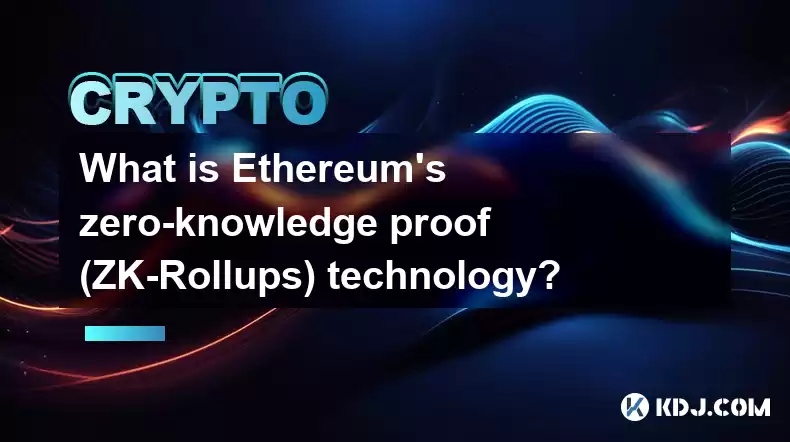-
 Bitcoin
Bitcoin $118800
-0.43% -
 Ethereum
Ethereum $4231
-0.53% -
 XRP
XRP $3.140
-1.41% -
 Tether USDt
Tether USDt $1.000
-0.02% -
 BNB
BNB $808.5
0.57% -
 Solana
Solana $175.1
-4.38% -
 USDC
USDC $0.9999
0.01% -
 Dogecoin
Dogecoin $0.2229
-4.71% -
 TRON
TRON $0.3458
2.18% -
 Cardano
Cardano $0.7744
-3.43% -
 Hyperliquid
Hyperliquid $43.19
-4.44% -
 Chainlink
Chainlink $21.19
-4.12% -
 Stellar
Stellar $0.4313
-2.84% -
 Sui
Sui $3.659
-5.59% -
 Bitcoin Cash
Bitcoin Cash $580.1
1.65% -
 Hedera
Hedera $0.2472
-4.61% -
 Ethena USDe
Ethena USDe $1.001
-0.03% -
 Avalanche
Avalanche $22.88
-3.98% -
 Litecoin
Litecoin $120.5
-2.63% -
 Toncoin
Toncoin $3.375
0.74% -
 UNUS SED LEO
UNUS SED LEO $8.984
-1.31% -
 Shiba Inu
Shiba Inu $0.00001296
-4.28% -
 Uniswap
Uniswap $11.06
1.08% -
 Polkadot
Polkadot $3.869
-4.65% -
 Cronos
Cronos $0.1664
1.09% -
 Dai
Dai $1.000
0.00% -
 Ethena
Ethena $0.7979
0.07% -
 Bitget Token
Bitget Token $4.395
-1.14% -
 Monero
Monero $268.2
-0.19% -
 Pepe
Pepe $0.00001125
-6.91%
What is Ethereum's zero-knowledge proof (ZK-Rollups) technology?
ZK-Rollups boost Ethereum's scalability by processing transactions off-chain, then submitting succinct validity proofs to the mainnet, enhancing throughput and privacy while significantly reducing costs.
Mar 12, 2025 at 12:11 am

Key Points:
- ZK-Rollups are a Layer 2 scaling solution for Ethereum, significantly increasing transaction throughput and reducing costs.
- They achieve this by bundling multiple transactions off-chain and then submitting a succinct proof of their validity to the Ethereum mainnet.
- Zero-knowledge proofs ensure the validity of the batch of transactions without revealing the transaction details themselves.
- Several different types of ZK-Rollups exist, each with its own trade-offs in terms of complexity and performance.
- Adoption of ZK-Rollups is growing, with many projects integrating this technology to improve scalability and privacy.
What is Ethereum's zero-knowledge proof (ZK-Rollups) technology?
Ethereum, while revolutionary, faces limitations in transaction speed and cost due to its on-chain processing. Zero-Knowledge Rollups (ZK-Rollups) address these issues by performing transactions off-chain and then submitting a concise proof of their validity to the main Ethereum blockchain. This significantly boosts throughput and reduces gas fees. The "zero-knowledge" aspect means these proofs verify the transactions' validity without revealing the specific transaction data, preserving user privacy.
How do ZK-Rollups work?
ZK-Rollups operate by aggregating multiple transactions into a single batch. These transactions are processed off-chain by a designated operator. After processing, the operator generates a cryptographic proof, a ZK-SNARK (Zero-Knowledge Succinct Non-Interactive Argument of Knowledge) or similar, attesting to the validity of the entire batch. This proof, much smaller than the entire transaction batch, is then submitted to the Ethereum blockchain for verification. The Ethereum mainnet only needs to verify this compact proof, not the individual transactions, drastically reducing computational load.
What are the benefits of using ZK-Rollups?
The primary benefit is scalability. ZK-Rollups allow Ethereum to handle a far greater number of transactions per second than it could on-chain alone. This directly translates to lower transaction fees, making Ethereum more accessible to a wider range of users. The inherent privacy provided by zero-knowledge proofs is another significant advantage, shielding transaction details from prying eyes. This improved privacy can be especially beneficial for applications requiring confidential transactions.
What are the different types of ZK-Rollups?
There isn't one single type of ZK-Rollup. Several different approaches exist, each with trade-offs in complexity and performance. The underlying cryptographic techniques used to create the zero-knowledge proofs can vary, impacting factors like proof size and verification time. Some ZK-Rollups might focus on specific types of transactions or smart contracts, optimizing for particular use cases. The choice of implementation depends on the specific needs and priorities of the project deploying the ZK-Rollup.
What are the challenges of ZK-Rollups?
While highly promising, ZK-Rollups aren't without their challenges. The generation of zero-knowledge proofs can be computationally intensive, requiring significant resources. This can be a barrier to entry for smaller projects. The complexity of implementing and deploying ZK-Rollups also poses a significant hurdle, requiring specialized expertise. Furthermore, the security of ZK-Rollups relies heavily on the security of the underlying cryptographic primitives and the integrity of the rollup operator.
How do ZK-Rollups compare to other Layer 2 scaling solutions?
ZK-Rollups are one of several Layer 2 scaling solutions for Ethereum, alongside Optimistic Rollups. Both aim to increase throughput and reduce costs, but they differ in their approach to transaction verification. Optimistic Rollups rely on a challenge mechanism, while ZK-Rollups use zero-knowledge proofs. This leads to different trade-offs in terms of security assumptions, transaction finality time, and complexity. The best choice depends on the specific application's needs.
What are the future prospects of ZK-Rollups?
The future looks bright for ZK-Rollups. As the technology matures and becomes more efficient, we can expect wider adoption across the Ethereum ecosystem. Ongoing research and development are focused on improving the performance and usability of ZK-Rollups, making them even more attractive to developers and users. This increased efficiency and scalability will be crucial for Ethereum to continue its growth and remain a leading blockchain platform.
What are some examples of projects using ZK-Rollups?
Numerous projects are already leveraging the power of ZK-Rollups. Some prominent examples include scaling solutions built specifically for ZK-Rollups that provide infrastructure for developers to easily deploy their applications. These platforms handle the complexities of generating and verifying zero-knowledge proofs, making it easier for developers to integrate ZK-Rollup technology into their projects. Many decentralized applications (dApps) are also migrating to ZK-Rollups to improve scalability and user experience.
What are the security implications of ZK-Rollups?
The security of ZK-Rollups hinges on the security of the underlying cryptographic proofs and the integrity of the rollup operator. While zero-knowledge proofs provide strong cryptographic guarantees, vulnerabilities in their implementation could be exploited. The operator's potential for malicious activity is another crucial security concern. Robust security audits and mechanisms for operator accountability are vital to mitigate these risks.
How can I learn more about ZK-Rollups?
Several resources are available to delve deeper into ZK-Rollups. Numerous research papers detail the underlying cryptographic principles and implementation details. Online courses and tutorials provide practical guidance on developing and deploying ZK-Rollup applications. Community forums and developer communities offer opportunities for collaboration and knowledge sharing. Staying up-to-date with the latest advancements in the field is crucial for understanding the evolving landscape of ZK-Rollups.
Frequently Asked Questions:
Q: Are ZK-Rollups secure? A: The security of ZK-Rollups depends on the robustness of the underlying cryptographic proofs and the integrity of the rollup operator. While generally considered secure, potential vulnerabilities and risks associated with operator malfeasance must be carefully addressed.
Q: How do ZK-Rollups improve privacy? A: ZK-Rollups utilize zero-knowledge proofs, which allow verification of transaction validity without revealing the specific details of those transactions, thus enhancing user privacy.
Q: What is the difference between ZK-Rollups and Optimistic Rollups? A: ZK-Rollups use zero-knowledge proofs for immediate transaction finality, while Optimistic Rollups rely on a challenge mechanism, resulting in a potential delay before finality.
Q: Are ZK-Rollups suitable for all Ethereum applications? A: While ZK-Rollups offer significant scaling benefits, their suitability depends on the specific requirements of the application. Factors like computational complexity and the need for immediate transaction finality should be considered.
Q: What is the future of ZK-Rollups? A: The future of ZK-Rollups is promising, with ongoing development focusing on improving efficiency, reducing complexity, and broadening adoption across the Ethereum ecosystem. They are expected to play a significant role in scaling Ethereum's capabilities.
Disclaimer:info@kdj.com
The information provided is not trading advice. kdj.com does not assume any responsibility for any investments made based on the information provided in this article. Cryptocurrencies are highly volatile and it is highly recommended that you invest with caution after thorough research!
If you believe that the content used on this website infringes your copyright, please contact us immediately (info@kdj.com) and we will delete it promptly.
- Dogecoin's Wild Ride: Big Holders, Price Push, and What's Next for the Meme Coin
- 2025-08-12 08:30:12
- Bitcoin to $133,000? Here's What the Experts Are Saying
- 2025-08-12 08:30:12
- Dogecoin, Meme Coins, and Whale Buys: What's the Hype?
- 2025-08-12 06:50:12
- Bitcoin, Ethereum, and the Pump-and-Dump Merry-Go-Round: A New Yorker's Take
- 2025-08-12 07:10:12
- MAGACOIN Mania: Why Holders Are Staking Their Claim in This Bull Season
- 2025-08-12 06:30:13
- Heritage Distilling's Bold Bet: A $360M IP Treasury Powered by Story Protocol
- 2025-08-12 06:30:13
Related knowledge

How to purchase Aragon (ANT)?
Aug 09,2025 at 11:56pm
Understanding Aragon (ANT) and Its PurposeAragon (ANT) is a decentralized governance token that powers the Aragon Network, a platform built on the Eth...

Where to trade Band Protocol (BAND)?
Aug 10,2025 at 11:36pm
Understanding the Role of Private Keys in Cryptocurrency WalletsIn the world of cryptocurrency, a private key is one of the most critical components o...

What is the most secure way to buy Ocean Protocol (OCEAN)?
Aug 10,2025 at 01:01pm
Understanding Ocean Protocol (OCEAN) and Its EcosystemOcean Protocol (OCEAN) is a decentralized data exchange platform built on blockchain technology,...

Where can I buy UMA (UMA)?
Aug 07,2025 at 06:42pm
Understanding UMA and Its Role in Decentralized FinanceUMA (Universal Market Access) is an Ethereum-based decentralized finance (DeFi) protocol design...

How to buy Storj (STORJ) tokens?
Aug 09,2025 at 07:28am
Understanding Storj (STORJ) and Its Role in Decentralized StorageStorj is a decentralized cloud storage platform that leverages blockchain technology ...

Where to find the best price for Audius (AUDIO)?
Aug 11,2025 at 04:01pm
Understanding the Basics of Ethereum StakingEthereum staking refers to the process of locking up ETH tokens to support the security and operations of ...

How to purchase Aragon (ANT)?
Aug 09,2025 at 11:56pm
Understanding Aragon (ANT) and Its PurposeAragon (ANT) is a decentralized governance token that powers the Aragon Network, a platform built on the Eth...

Where to trade Band Protocol (BAND)?
Aug 10,2025 at 11:36pm
Understanding the Role of Private Keys in Cryptocurrency WalletsIn the world of cryptocurrency, a private key is one of the most critical components o...

What is the most secure way to buy Ocean Protocol (OCEAN)?
Aug 10,2025 at 01:01pm
Understanding Ocean Protocol (OCEAN) and Its EcosystemOcean Protocol (OCEAN) is a decentralized data exchange platform built on blockchain technology,...

Where can I buy UMA (UMA)?
Aug 07,2025 at 06:42pm
Understanding UMA and Its Role in Decentralized FinanceUMA (Universal Market Access) is an Ethereum-based decentralized finance (DeFi) protocol design...

How to buy Storj (STORJ) tokens?
Aug 09,2025 at 07:28am
Understanding Storj (STORJ) and Its Role in Decentralized StorageStorj is a decentralized cloud storage platform that leverages blockchain technology ...

Where to find the best price for Audius (AUDIO)?
Aug 11,2025 at 04:01pm
Understanding the Basics of Ethereum StakingEthereum staking refers to the process of locking up ETH tokens to support the security and operations of ...
See all articles

























































































